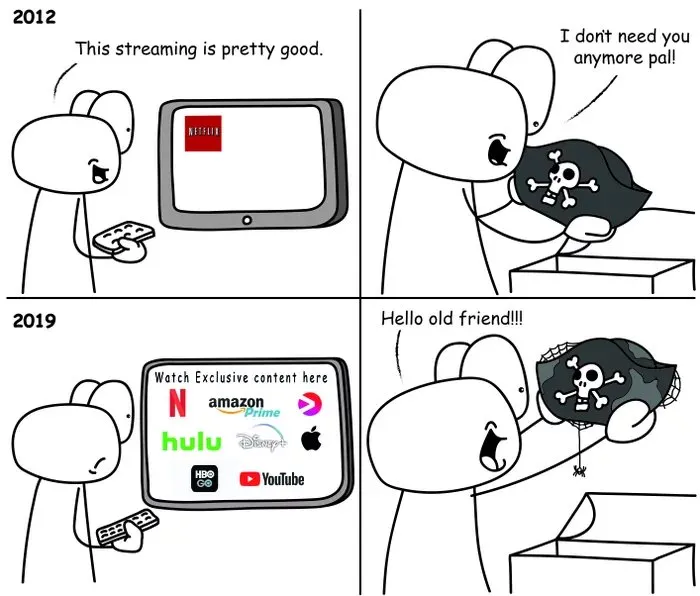}
Netflix's shares plummeted this week after reports showed that even during the pandemic, Netflix failed to show the growth that was expected from it. The problem? Well, the problem is content. Until a few years ago, Netflix was a technology company (even though it thought it wasn't). It provided great streaming technology and streamed content from various sources.
It was the almost exclusive video on demand streaming service in the market. Well... some other services existed, but they were limited for specific content, studios or productions.
However, during the last year or so, Hollywood decided to fight back against Netflix, and decided to launch its own streaming services and take content away from Netflix. The big studios rebooted Hulu into a slick, exclusive, app; Disney launched Disney Plus and grew quicker than everything else.
This caused Netflix's content to decline in quality, not quantity. Yeah; the number of titles grew and grew; but not that many people are interested in a documentary about a slug rearing a caterpillar.
This caused the fragmentation again. Where people paid numerous services for video streaming or TV services until cord-cutting became popular. Netflix was not a competition to the $100 a month TV package, it was a competition to piracy.

[source]
A research I conducted back in 2010-1 with Dr. Nimrod Kozlovski asked for the opinion of numerous content creators and consumers about how they access content; either legally or illegally. We found three different criteria on content consumption: price, quality and availability. If something is cheap and in high quality, it would be used. If the quality is sufficient has high availability, people will pay more.
When people see this fragmentation, they won't go and buy more streaming services. They will return to the good old piracy.
There's only one solution for this; and it comes from the music industry. It is called "blanked licensing". It means that everyone has the permission to play any music it wants, as long as it pays royalties to the collection company that then pays the artists.
This is why music is not exclusive to Apple Music or Spotify, but global. This is also how better content would be consumed. If we separate content from technology, and make sure that tech companies develop tech, and studios keep making content, we can make sure that more people will get more culture, in the form of video content.
Think of the difference between Spotify and Tidal. Both provide the same songs (almost); so why would you choose one over the other? Spotify attempts to gain traction by buying more and more podcasts and entering into an exclusive deal with them; but in terms of music? both provide the same music with different recommendation engines. So; you opt for one solution over the other based on technology (quality and recommendation) and not quantity.
Netflix's biggest advantage was its recommendation engine; but with poor content? you can recommend all day long, but people won't watch.
So, if you want a better society, you need to get to blanket licensing. If you want piracy to thrive? keep doing what you're doing.